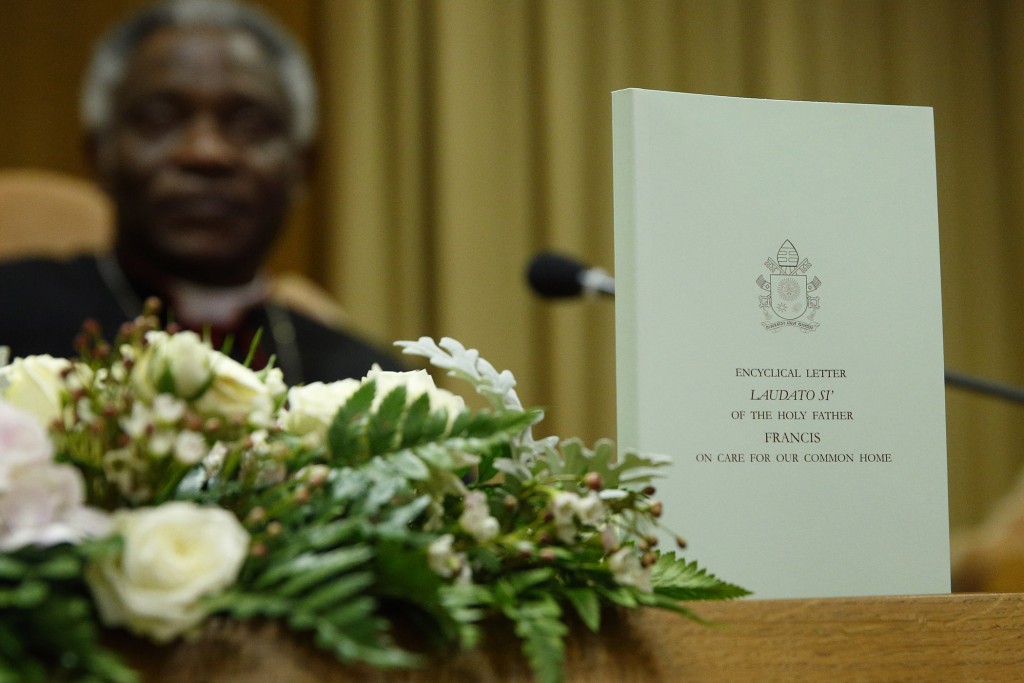
Pope Francis successfully makes clear the significance of the issues related to climate change, says Catholic Scientist, Dr Anthony Horton.
The Pope has done this, continued Dr Horton, with a particular mindset of the role that every human being must play, and the need for each of us to act, rather than being complacent
Speaking from the view of a Catholic scientist, Dr Horton spoke to the eRecord, having worked in the Climate Change space for the last 14 years and following the release of the Pope’s new encyclical, Laudato Si’, which was released on Thursday evening (Perth time), last week.
Dr Anthony Horton, a parishioner at St Joseph’s Parish, Subiaco, holds a PhD in Environmental Science, a Bachelor of Environmental Science with Honours, and a Diploma of Carbon Management, and currently consults to various stakeholders in the environmental science industry.
Dr Horton went on to say that few people, if anyone, would argue that those fortunate enough to live in relative security and comfort should not spare a thought for those less fortunate, “in addition to those who find themselves struggling with the daily reality of survival in the context of poverty,” he said.
“In having this theme as a central principle of his Encyclical, Pope Francis correctly establishes the lens through which climate change needs to be viewed, discussed and acted upon – this being a social justice/equity as well as an environmental issue,” he continued.
Having reviewed numerous recent publications, online articles and posts on social media, Dr Horton said he feels it is important to establish now that indeed climate change is being increasingly viewed and discussed as a social justice/equity issue.
“Indeed, programs are emerging in a number of sectors that demonstrate concrete actions to assist the poor to deal with climate change in some way, whether it be financial assistance or initiatives such as free solar panels for their houses.”
Dr Horton went on to say that the target audience of the Encyclical wasn’t solely the scientific community and that it is well worth persisting until the end of the document to fully appreciate its message.
“It is important to highlight a few points that need to be aired in any discussion of climate change from a scientific perspective.
“Firstly, the growth in the Earth’s population is a significant issue on its own and, while it is obviously part of the climate change challenge, it needs to be addressed in any balanced scientific discussion.
“I am challenged by the assertion that blaming population growth is somehow refusing to face the issues.”
Most people, said Dr Horton, would recognise that the majority of the earth’s resources are being stretched and that this will continue with increasing population growth rates.
“It is important to say here that the reality of climate change is bringing population growth rates into sharper focus from the perspective that the mobility of populations (either necessitated by climate change or as a result of a desire for a better standard of living thought to be found in urban areas near cities) brings new pressures to the areas where these mobile populations eventually settle.”
Peoples’ want for some of the symbols of a better standard of living (larger houses, motor vehicles etc), he said, also inevitably add emissions into the mix which, when multiplied by every person living in the same area and wanting the same symbols, becomes a significant issue.
Dr Horton also said he admits to being somewhat challenged by the Encyclical’s perspective of technology and, in particular, its motivations and shortcomings.
“I commend the inclusion of the discussion of approaches and actions within the Encyclical, even if I am challenged by some of the points of view,” he said.
“There is increasing evidence that pricing carbon is bringing about the very challenge placed squarely at its feet in the document – that buying and selling carbon credits simply leads to speculation that would not help to reduce emissions.
“The sheer number of emissions trading schemes/cap and trade schemes in operation around the world, and the nationalisation of China’s pilot schemes early next year, points to the seriousness with which markets view emissions reduction.
Dr Horton continued by saying that, while he is not naïve to suggest that markets are the answer to everything, the indications to date show that, in this case, the market is certainly responding positively and emissions are being reduced.
“I also commend the inclusion of the discussion of the precautionary principle in the Encyclical, even if it wasn’t explicit. I would add that a number of the points expressed in the discussion of environmental protection could be addressed by a discussion of the Environmental Impact Assessment (EIA) process.
“In brief, this process takes into account all of the environmental aspects of a project, the impact of that project on each aspect and appropriate mitigation measures for each impact.
“I also couldn’t discuss the Encyclical from a scientific perspective without noting the slightly incorrect interpretation of the greenhouse effect in terms of the statement that gases in the atmosphere don’t allow the warmth of the sun’s rays reflected by the Earth to be dispersed in space.
“The point regarding increased concentrations of greenhouse gases and the intensive use of fossil fuels was, however, well made and is valid.
“From a local perspective, the Encyclical certainly makes clear and reinforces the need for all of us to act and that action must occur now, and is therefore aligned with recent announcements by Archbishop Costelloe that complacency is not an option.”